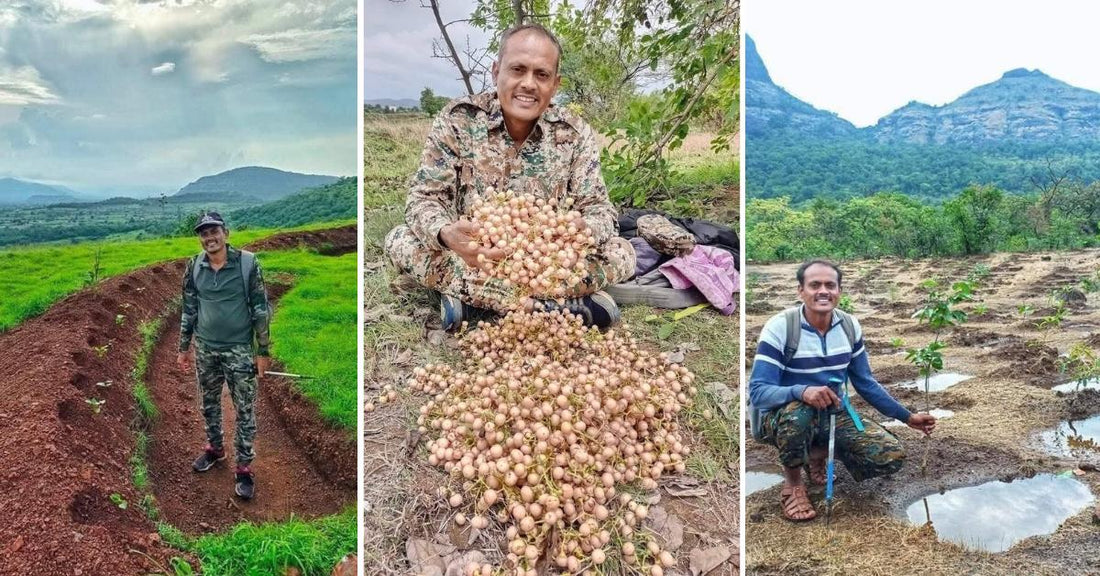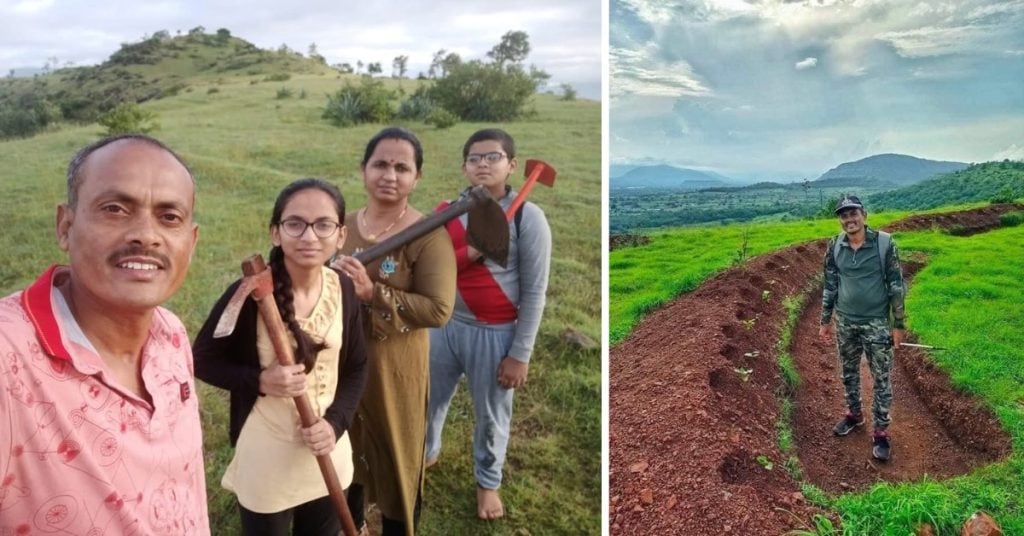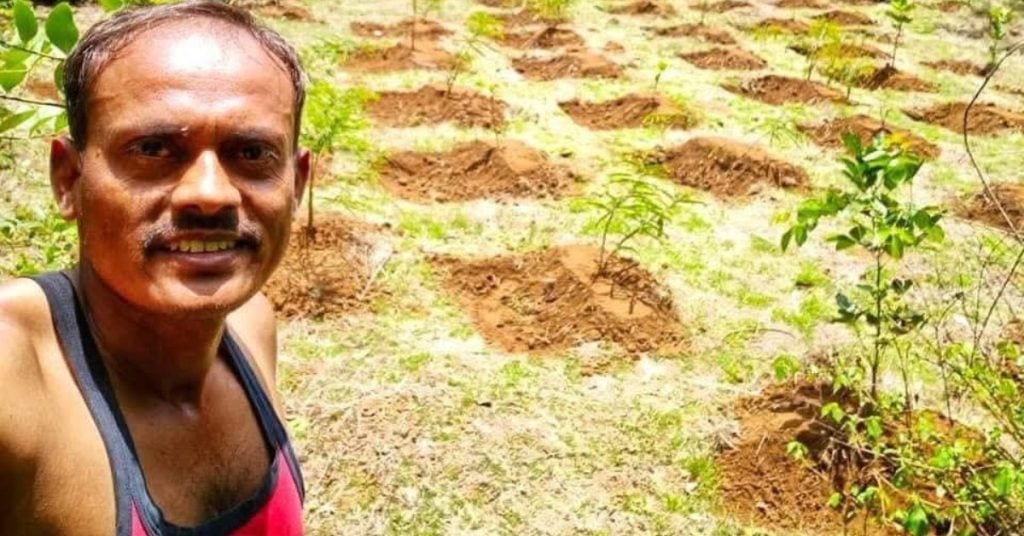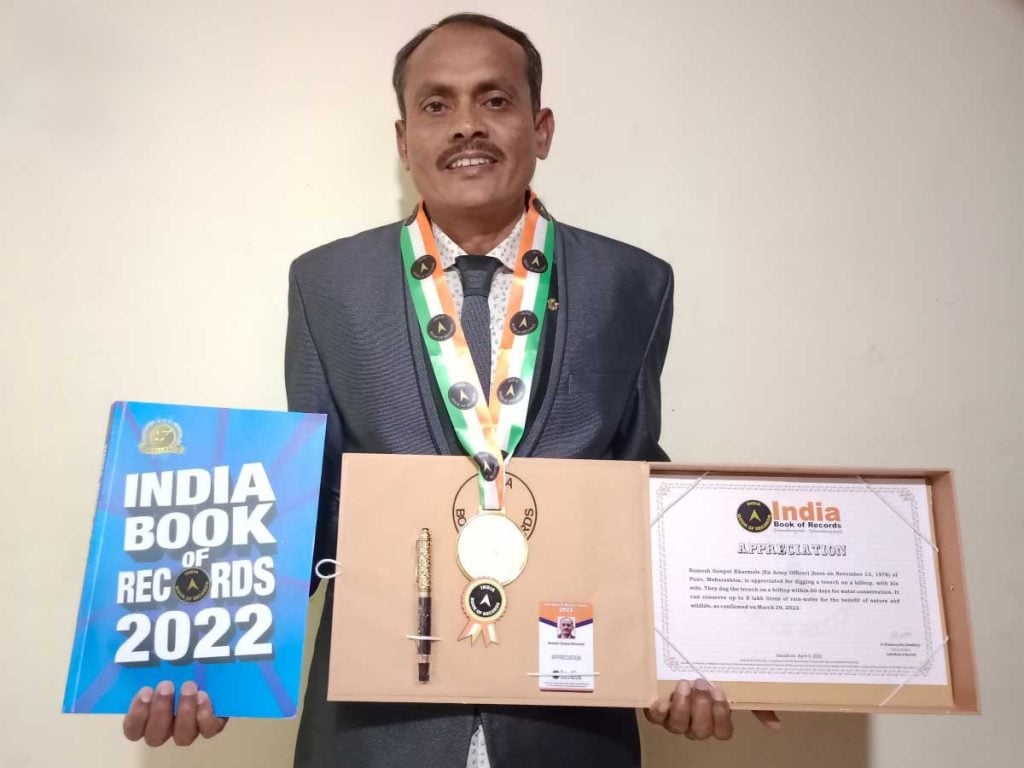Ramesh Kharmale: From Retired Soldier to Eco-Warrior Reviving Junnar Hills

In the picturesque hills of Junnar in Maharashtra's Pune district, a former Indian Army soldier is spearheading a significant environmental transformation. Ramesh Ganpat Kharmale, aged 49, who spent 25 years serving in the 1st Battalion of the Maratha Light Infantry, has now embarked on a mission to rejuvenate deforested hills and restore water sources, working alongside his family and the Maharashtra Forest Department.
A Soldier’s Transition from Military Service to Conservation
Following his retirement from the Indian Army, Kharmale initially took up a position in a bank and later established an academy to train tribal youth for police and defense roles. However, his growing concern over the diminishing water resources, deforestation, and loss of wildlife in his village led him to focus on environmental conservation efforts.
Kharmale reflects on his dual service, stating, "Both duties I performed are aimed at saving the motherland," attributing his dedication to conservation to the discipline he acquired during his military career.
Weekend Tree Planting Initiative
Kharmale's environmental efforts are a family affair. His wife Swati, daughter Vaishnavi (20), and son Mayuresh (13) actively participate. Every weekend, they ascend the sun-baked hills of Junnar, equipped with tools, saplings, and seedballs.
Together, the family plants trees, digs trenches, clears weeds, and addresses issues like soil erosion, wildfires, and water scarcity.
"Seeing our trees grow gives us immense satisfaction," Swati reflects, expressing the family's collective passion.

Dhamankhel Hill: From Desolate to Flourishing
The initiative took a pivotal turn in 2021 when Kharmale began working on Dhamankhel Hill. Over two months, he manually created 70 contour trenches, spanning 412 meters. These structures now capture approximately 8 lakh liters of rainwater, aiding groundwater recharge and erosion prevention.
To date, more than 450 trees have been planted on the hill, with plans for an additional 500. The area is gradually evolving into a thriving ecosystem, teeming with birds, insects, and native plant species.

Creating a Biodiversity Haven: Oxygen Park
In Vadaj village, located 3 km from Dhamankhel, the Kharmale family established an Oxygen Park on 1.5 acres. Partnering with the Malhar Foundation, the park now features 175 native trees, including banyan, lemon, and Dalbergia sissoo.
The project was executed through a community model where donors contributed directly to nurseries, and trenches were dug to facilitate growth. The family even excavated four small ponds to support local wildlife.

Contour Trenching: Effective Water Management
Kharmale applies scientific trenching methods aligned with the land’s natural contours. This technique, also utilized in regions of Telangana and Karnataka, is effective in capturing rainwater, reducing surface runoff, and enhancing groundwater levels.
Local farmers have observed an increase in well water levels since Kharmale introduced these methods, and the model is now being considered for implementation in other villages.

Joining the Forest Department
Kharmale made his environmental dedication official by joining the Maharashtra Forest Department as a forest guard. Despite his role, his weekend conservation efforts remain entirely self-funded and voluntary.
“He is one of our most dedicated staff members,” states Pradip Chavan, Junnar Range Forest Officer.
Kharmale invests ₹15,000–₹20,000 monthly from his salary to purchase saplings, seeds, and necessary equipment.

National Recognition
Kharmale's conservation efforts gained national attention on June 30, 2025, when Prime Minister Narendra Modi acknowledged his work during the 123rd episode of ‘Mann Ki Baat’.
PM Modi praised Kharmale, stating, “Ramesh Kharmale goes to the hills of Junnar with his family... digs trenches, plants trees, and brings back birds and wildlife,” recognizing the grassroots conservation model.
Previously, Kharmale also received the Shivneri Bhushan Award for his contributions to community service and sustainable tourism promotion.

From Seedballs to Plastic-Free Initiatives
Since 2013, the family has been scaling the Sahyadri hills each June to distribute seedballs ahead of the monsoon, aiding in forest regeneration.
They have also launched a campaign to eliminate plastic in Junnar's tourist sites, with backing from thousands of volunteers and schoolchildren.
In 2017, Kharmale acquired a grass-cutter to prevent wildfires, a major threat to the region's forests.

Self-Reliant, Volunteer-Driven Conservation Efforts
Impressively, the Kharmales do not accept external donations. Their environmental work is fueled by discipline, community involvement, and personal commitment.
Their daily routine begins at 5:30 a.m. with activities related to planting and water management, continues with formal forest duties, and resumes after 5 p.m.
Their Facebook page, ‘Nisargaramya Junnar Taluka’, has garnered over 50,000 followers, raising awareness and attracting more volunteers.
Conclusion
Kharmale exemplifies that patriotism extends beyond retirement. His military discipline, strategic foresight, and leadership have redefined service to the nation.
He encourages others to "Plant four trees for your children’s future," a message resonating throughout Maharashtra and beyond.
From the battlefield to barren landscapes, Ramesh Kharmale's journey is a testament to hope, service, and environmental bravery. Supported by his family and a growing volunteer community, he demonstrates that one soldier, one family, and one mission can restore the land, one tree at a time.



















